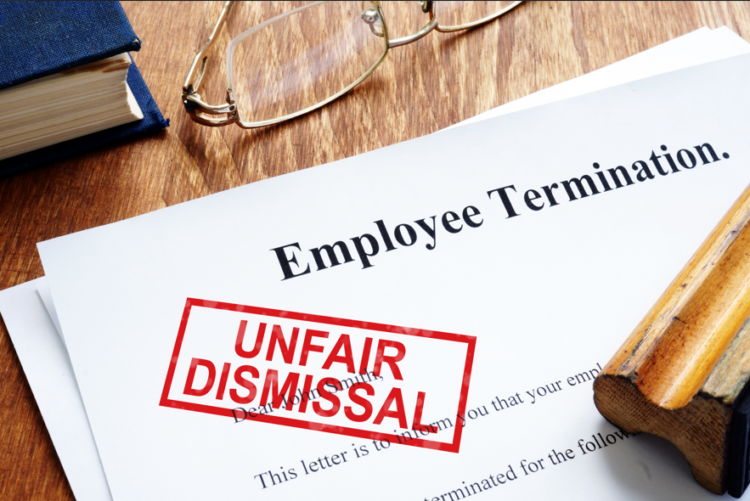The majority of senior and middle managers believe the government’s wholesale reform of employment rights will benefit their businesses and wider society, according to a survey.
The poll of 1,000 managers with a focus on HR and recruitment gave government policies such as introducing day one rights, improving sick pay access and raising the national minimum wage to a real ‘living wage’ the thumbs up.
Unfair dismissal rights
Two thirds (66 percent) of managers think giving employees greater protection from unfair dismissal on the first day of employment, as well as the right to parental leave from day one, would have a positive impact on their business. Only 10 percent said changes to unfair dismissal rules would have a negative impact, while 12 percent viewed day one parental leave rights negatively, according to the Opinium poll conducted on behalf of the IPPR think tank, the TUC and research initiative Persuasion UK.
Currently employees must complete a two-year qualifying period before they can bring an unfair dismissal claim. The Labour government plans to remove this two year period meaning that a claim for unfair dismissal could be brought from day one of employment depending on the final policy changes.
However, in previous research from Brightmine, published in July, HR professionals expressed concerns about any changes to rules around unfair dismissal claims, saying it would have a big impact for employers.
Good for business
Most managers backed the government policy on reforming sick pay, with 66 percent saying that giving all workers access to sick pay from the first day of their illness will be good for their business. Only 12 percent disagreed with this sentiment
A proposed ban on exploitative zero-hours contracts was also viewed positively by 64 percent of respondents, with just 10 percent opposing a ban.
Interestingly, 70 percent of managers viewed increasing the national minimum wage to a real ‘living wage’ as positive for their business, particularly with the ongoing cost of living crisis. The percentage that felt this wage increase would be negative for their company was low at 12 percent of respondents.
More than half of managers (56 percent) think that making it easier for unions to achieve recognition and collectively bargain with employers would have a positive impact on their business. Only 12 percent said such a move would have a negative impact.
‘Broad optimism’
Respondents told researchers they viewed the planned changes to workers’ rights positively because they will boost employee health and happiness and mean their staff are more engaged. Managers said that the reforms would offer employees greater security and stability as well as bringing wider benefits to their businesses and the economy.
This poll supports previous IPPR research, published in early September, 2024, that found that the majority of employers thought stronger workers’ rights would lead to better productivity and profitability at their firms.
Researchers said that the findings demonstrate “broad optimism” about the government’s policies among managers in sectors likely to be more impacted. These include hospitality and retail where pay is generally lower and levels of employee insecurity are higher than in other sectors, the researchers said.
For example, 63 percent of hospitality, leisure and food employers said that day one protection from unfair dismissal will have a positive impact on their business, while 15 percent think it will be negative.
More than half of this group of employers (59 percent) agreed that giving the right to sick pay from day one and banning zero-hours contracts will benefit their businesses.
Retail employers also saw value in employment rights changes with 57 percent saying that introducing protection from unfair dismissal from day one is good for their business, compared to 22 percent who think the move will have a negative effect.
Retail employers backed a ban on exploitative zero-hours contracts with 63 percent viewing it as a positive change, while 12 percent viewed it negatively.
‘Explosion in insecure work’
“Driving up employment standards is good for workers and good for business. Most managers understand that if you treat your staff well they will perform better,” said Paul Nowak, general secretary at TUC.
“It is vital the government’s plan to ‘make work pay’ is delivered in full, including through the forthcoming employment rights bill.
“The Conservatives presided over a huge explosion in insecure work that has been terrible for workers’ livelihoods and business performance.
“Creating a basic floor of rights and protections will stop decent employers from being undercut by the cowboys.”
George Dibb, associate director for economic policy at IPPR, said: “Managers across different industries recognise the value of a workforce that feels secure and supported. The government’s proposals to strengthen employment rights, from day one protections to banning zero hours contracts, aren’t just good for workers — they’re good for businesses and a growing economy too.
“Forward-thinking managers know healthier, happier employees result in stronger, more resilient companies.”
Steve Akehurst, director of Persuasion UK, said: “Perhaps surprisingly businesses and the public are united in supporting enhanced workers’ rights. In fact, it is one of the government’s most popular policies. Anyone who says differently is simply out of step with the rest of the country.”












